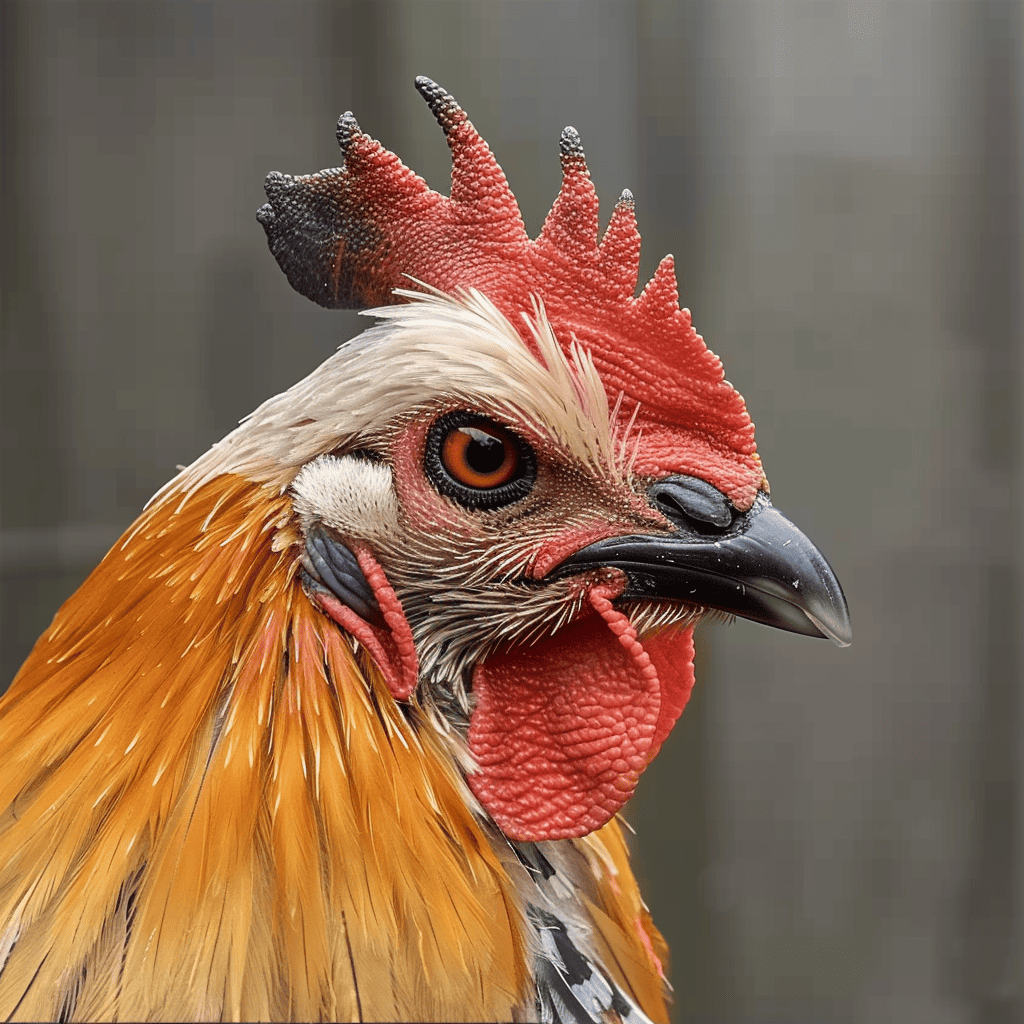One of my most dreaded situations has been when one of my chicken’s beaks is turning black. As an avid chicken owner with years of experience under my belt, I’ve encountered my fair share of curious situations. But perhaps one of the most puzzling was the first time I noticed one of my chickens developing a black discolouration on her beak. If you’re finding yourself in a similar situation, you’re not alone. Today, I want to share my journey — from the initial shock to understanding and managing this condition.
Insights From An Expert
When I noticed the unusual black discolouration on Daisy’s beak, I immediately sought advice from my trusted veterinarian. They emphasized the importance of a comprehensive approach to care, stating, ‘Proper nutrition, coop cleanliness, and stress management are crucial in preventing and treating beak discolouration. In cases like Daisy’s, where a fungal infection is present, applying an antifungal medication directly to the affected area, coupled with environmental management, is essential for recovery.’ This concise yet insightful advice not only guided me through treating Daisy but also reinforced the importance of preventative measures for the overall health of my flock.
Below is a table summarizing potential medical reasons for a chicken’s beak turning black, ranging from simple to severe conditions. This overview provides a snapshot of the possible causes, symptoms, and general treatment approaches. Keep in mind that a professional diagnosis from a veterinarian is crucial for accurate identification and treatment.
| Condition | Symptoms | Severity | General Treatment Approach |
|---|---|---|---|
| Nutritional Deficiencies | Cracks, chips, or discolouration; bleeding in severe cases | Simple | Improve diet with balanced nutrients, vitamins, and minerals. |
| Fungal Infections | Black or discolored patches on the beak; may spread | Mild | Antifungal medications and improving coop cleanliness. |
| Bacterial Infections | Similar to fungal infections; possible swelling or pus | Moderate | Antibiotics and proper sanitation. |
| Trauma or Injury | Cracks, chips, or discoloration; bleeding in severe cases | Variable | Depends on severity—may range from natural healing to needing veterinary care for severe cases. |
| Pecking and Cannibalism | Wounds on the beak; signs of aggression in the flock | Moderate | Implement strategies to reduce stress and overcrowding; may require beak treatment or separation. |
| Avian Pox | Scabby lesions on the beak and face; general malaise | Severe | Supportive care, vaccination in non-infected birds, and maintaining a mosquito-free environment. |
| Tumor or Cancer | Abnormal growths; may affect eating or behavior | Severe | Surgical removal if possible, supportive care, and consultation with a vet for ongoing management. |
First Encounters
It started one crisp morning during my routine flock check. There, among the usual clucking and feather fluffing, I noticed something unusual: a black patch on the beak of Daisy, my most spirited hen. At first, I thought it was just dirt or a result of her digging adventures. But upon closer inspection, I realized it wasn’t something that could be wiped away.
Understanding the Cause
My first step was diving into research and consulting with a vet. I learned that a chicken’s beak turning black could be attributed to several factors, ranging from nutritional deficiencies to fungal infections, and even to the normal ageing process. In Daisy’s case, it was a mild fungal infection, something that, while alarming at first glance, was treatable.
Practical Advice and Tips
Based on my experience and further learning, here are some practical tips for fellow chicken enthusiasts facing this issue:
Personal Anecdotes and Lessons Learned
Treating Daisy’s condition involved applying antifungal medication and making some adjustments to the coop’s hygiene routine. It was a learning curve, not just in treating the condition but in preventing future occurrences. This experience taught me the importance of vigilance and proactive care in keeping my flock healthy.
Final Thoughts
Watching a chicken’s beak turn black can be a daunting experience, but with the right knowledge and approach, it’s a manageable situation. My journey with Daisy has reinforced my belief in the importance of proper care, feeding, and housing for our feathered friends. It’s these challenges that deepen our understanding and connection with our flocks, making the journey of chicken ownership all the more rewarding.
Remember, every chicken keeper’s experience is unique, but sharing our stories and insights can help us all grow together. Whether you’re a seasoned chicken enthusiast or just starting, know that you’re part of a community that’s here to support and learn from each other. Here’s to happy, healthy chickens and the endless joy they bring into our lives!
FAQs
Do chicken beaks change colour?
Yes, chicken beaks can change colour due to various factors such as age, diet, or health issues.
What does an unhealthy bird beak look like?
An unhealthy bird beak may appear discoloured, cracked, overgrown, or deformed.
What does a calcium deficiency in chickens look like?
A calcium deficiency in chickens can lead to weak or brittle bones, reduced eggshell quality, and in severe cases, rickets.
How do I know if my chicken has mites?
Signs of mites include excessive preening, feather loss, scaly legs, and visible tiny insects on the skin or feathers.
Why is my chicken’s comb turning black?
A chicken’s comb turning black could indicate frostbite, circulatory problems, or a sign of an underlying disease.

